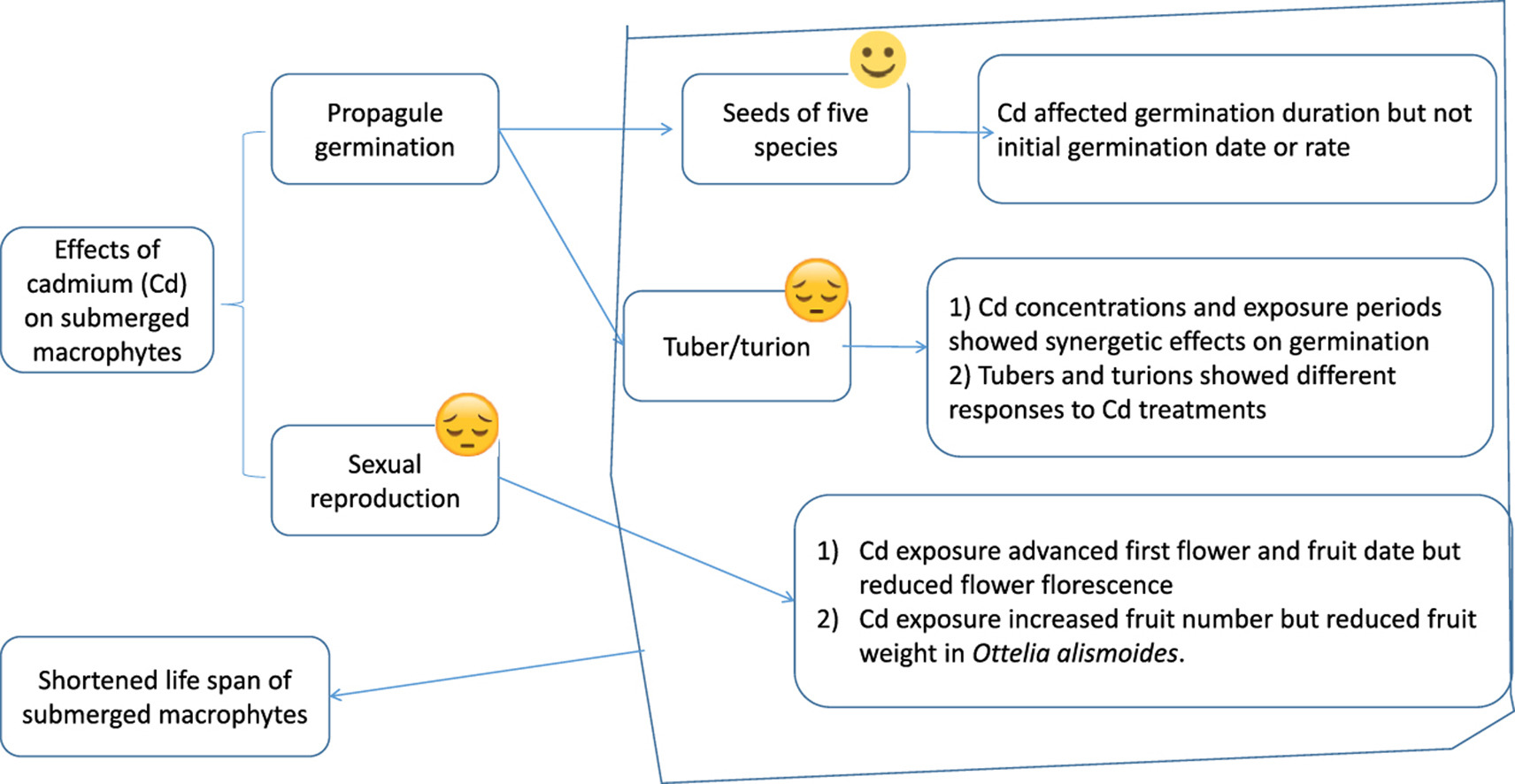Name:LI Wei
Tell:
Email:liwei@wbgcas.cn
Organization:Wuhan Botanical Garden
What Happens to Macrophytes Exposed to Heavy Metal of Cd?
2019-03-05
Submerged macrophytes play an essential role in maintaining the ecological equilibrium of shallow lakes and restoring eutrophic lakes. However, excessive heavy metal loading in the aquatic ecosystem has become a major threat to submerged macrophytes, which also poses a serious threat to human health due to its high toxicity.
Cadmium (Cd) has become one of most common heavy metal contaminants in China according to the recent Communique of the National Soil Pollution Survey in China. Most recent studies have focused on the effect of heavy metals on the vegetative growth phase of aquatic plants, and there are only few studies on the reproductive life stages of sexual reproduction and propagule germination of aquatic plants.
A research group from Wuhan Botanical Garden investigated the effects of Cd on propagule germination and sexual reproduction of submerged macrophytes.
This study demonstrated that asexual propagule germination and sexual reproduction of submerged macrophytes were sensitive to various Cd exposure concentrations, but the seed germination was less affected by Cd concentration and only slightly affected for some species when Cd concentration up to 5 mg L-1.
The life cycle of submerged macrophytes was significantly shortened by Cd exposure. In addition, seeds were more tolerant to Cd exposure than tubers and turions, suggesting that the buried seeds in sediment of polluted lakes provided good resources for the re-establishment of submerged plants.
This research was supported by the National Natural Science Foundation of China. Results have been published in Chemosphere entitled “Responses of propagule germination and sexual reproduction of submerged macrophytes exposed to cadmium”.

The seeds are resilient to Cd exposure but not so for tuber/turion or sexual reproduction (Image by WBG)